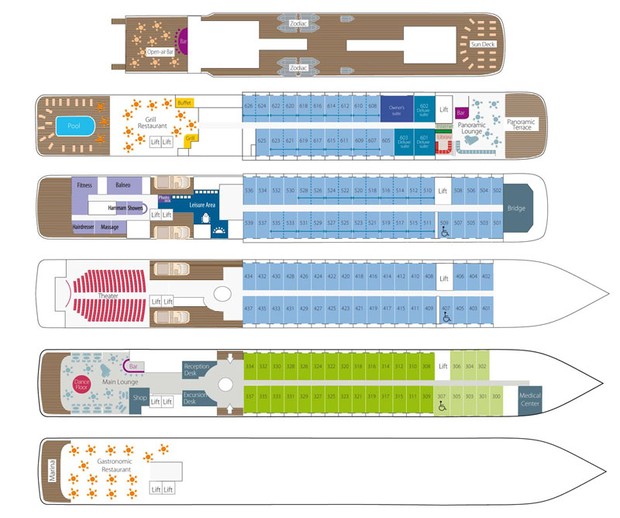In alliance with Smithsonian Journeys.
This cruise is part of a collection of PONANT voyages that are specially-tailored for English-speaking travelers who want to engage with the world. In addition to the usual elements of the PONANT experience, the listed price for these voyages includes transfers to and from the ship, talks and discussions aboard ship by world class experts, and a shore excursion or activity in each port of call that encourages guests to embrace the sights, sounds, tastes, and smells of the local environment and culture.
Set sail with PONANT aboard Le Soléal for a 9-day cruise to discover the many traditions and emblematic sites of the Land of the Rising Sun.
Your voyage begins in endearing Kobe, one of the first Japanese ports to open to international trade in the 19th century and home to its famous eponymous marbled beef.
Arrive in the port of Takamatsu, the largest city on the island of Shikoku. You will find the splendid Ritsurin Garden here, a masterpiece constructed during the early Edo period as an escape from the bustle of daily life. Takamatsu is also renowned for its most famous dish – udon noodles – and you can try your hand at preparing them here.
Continue to Hiroshima, whose UNESCO World Heritage-listed Hiroshima Peace Memorial bears witness to the horrific aftermath of the world’s first atomic bomb explosion on August 6, 1945. You may also choose to visit the Saijo sake brewing district for a tasting. Then call at Miyajima, the gateway to the majestic Itsukushima Shinto Shrine, listed as a UNESCO World Heritage site, whose magnificent vermillion torii gate appears to float on water.
Le Soléal sails on to Hagi, whose contributions to Japan’s industrialization and modernization have been honored by UNESCO. At Hagi Castle Town, walk in the steps of the samurai as you stroll its beautifully preserved streets.
The richness from which to choose is immediately apparent in, Sakaiminato, where options include Matsue Castle, built entirely of pine in 1611; the Adachi Museum of Art, displaying the great masters of modern Japanese painting and sculpture; a demonstration of the ancient craft of making paper (washi) from tree bark; and Yushien Garden, a landscape garden in traditional style, famous for its peonies.
The South Korean port of Busan offers a similar range of experiences: Haedong Yonggungsa Temple, built in 1376 overlooking the sea; the Busan Museum of Art, featuring an outdoor sculpture garden as well as exhibits of contemporary Korean artists; Gyeongju Historic Areas, designated a UNESCO World Heritage site representing the flowering of Silla culture between the 7th and 10th centuries; and a Korean Tea Ceremony at the Hongbeopsa Temple, famous for having the largest Buddha statue in Asia.
Back in Japan, call in Moji, which enjoyed its heyday in the early 20th century as the center for Japanese trade with China. Nearby is Kozan-ji Temple, founded in the Kamakura period and the oldest Zen style temple in Japan.
From the port of Uno, end your voyage in the small Japanese city of Tamano, a former feudal domain with a unique cultural heritage. From here you will be able to admire the famous Korakuen Garden, one of the country’s must-see landscaped gardens.
Your voyage ends upon your return to Kobe.
- A voyage specially-tailored for English-speaking travelers including discussions with experts, transfers before and after your cruise, and an included excursion in each port of call.
- Engaging discussions onboard with two Smithsonian Journeys Experts.
- A discovery of the beautiful cultural and rich historical traditions and landscapes of Japan.
- UNESCO World Heritage sites en route: Hiroshima Peace Memorial, Itsukushima Shinto Shrine, Sites of Japan’s Meiji Industrial Revolution, Gyeongju Historic Areas, Bulguksa Temple, and Historic Monuments of Ancient Kyoto (optional pre-cruise program).
- An opportunity to make – and eat – traditional Japanese udon noodles, and a chance to sample sake in a traditional sake-making village.
- Three remarkable, traditional Japanese gardens – Korakuen, Ritsurin, and Yushien.
- Hiroshima’s Peace Memorial Park and Museum and the Atomic Bomb Dome.
- Stunning Buddhist temples in Busan, including the largest Buddha statue in Asia.
- Outstanding modern Japanese paintings at the Adachi Museum in Matsue.
Prices quoted here are often dependent on currency fluctuations. Please check with (01432 507450 or info@small-cruise-ships.com) for the very latest price, which may well be cheaper than the one advertised here.
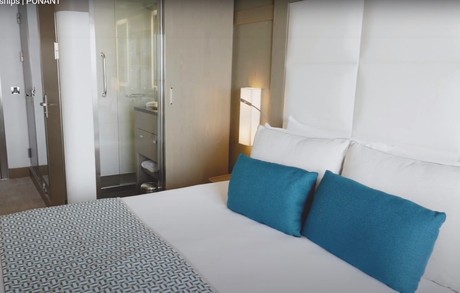
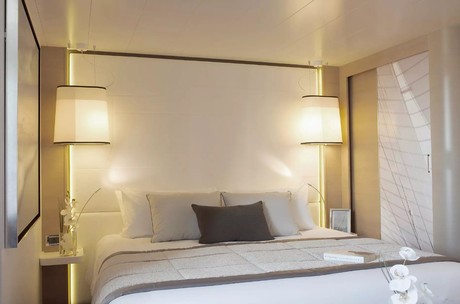
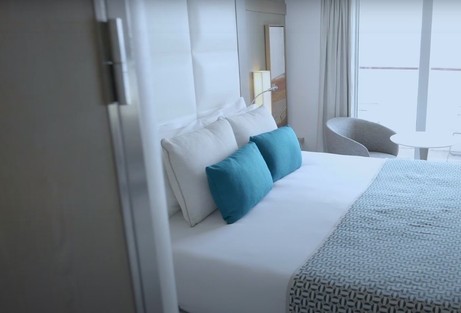
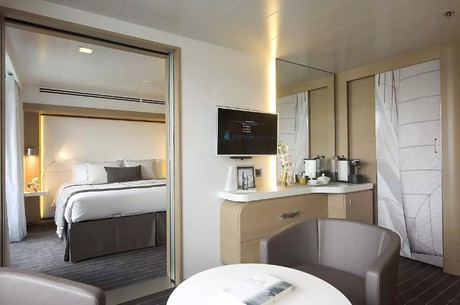
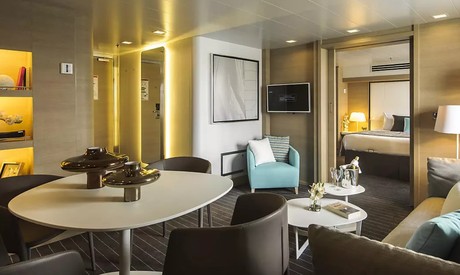
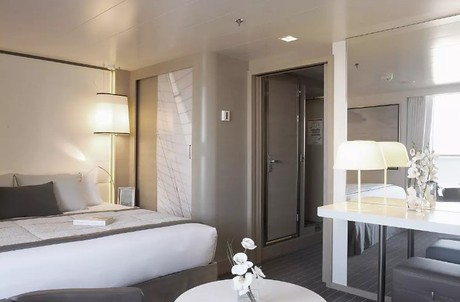
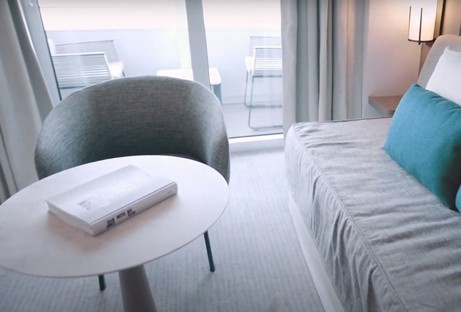
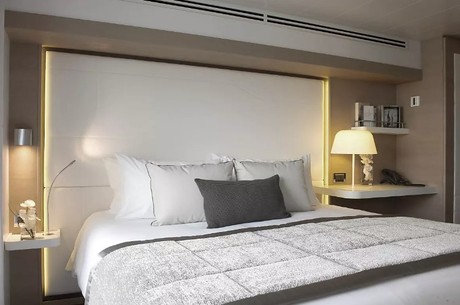
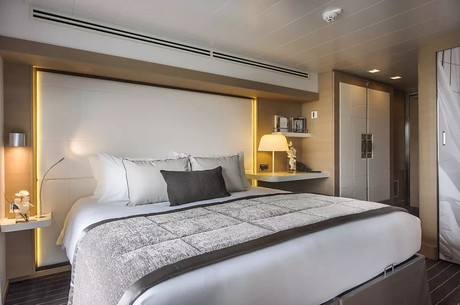
Prices quoted here are often dependent on currency fluctuations. Please check with (01432 507450 or info@small-cruise-ships.com) for the very latest price, which may well be cheaper than the one advertised here.
A coastal city on the main island of Honshū, Kobe is a vital Japanese port. You will be inspired by the authenticity, way of life and heritage of the capital of Hyōgo Prefecture, which is bordered by the sea. Its beef is internationally renowned, but there is much more to the city’s attractions than this delicate speciality. As soon as you arrive, you will be welcomed by the Kobe Port Tower, located, along with the Maritime Museum, in the much appreciated Meriken Park. The Mount Rokkō National Park is a real island of greenery in the very heart of the vibrant city. Long frequented by Shinto monks, then popular with the expatriates who flocked to Kobe during the second half of the 19th century, it is one of the symbols of the city.
A former fortified city, ruled over by the Matsudaira clan from the Tamamo castle with its seawater moats, the city is home to one of the most beautiful classic gardens in Japan, the Ritsurin. It was created by the barons of the city at the start of the Edo period, during which time gardening became a profession in its own right. Its landscape incorporates Mount Shiun in the background, an example of what is known as the shakkei technique, which uses the surrounding landscapes to increase the beauty of the gardens.
Between the islands of Honshu and Shikoku, in the very heart of the emblematic Seto Inland Sea, the Kurushima Strait will unveil a traditional and picturesque Japan. This 4-kilometre (2.5-mile) maritime route, with swift currents, will give you the opportunity to discover certain great feats of engineering, such as the mythical Kurushima Kaikyō Bridge. This colossal construction is the first triple bridge and the longest set of suspension bridges in the world, with a total length of 4,105 metres (almost 13,500 feet) In the footsteps of the Japanese traders from the middle of the 18th century, fall under the spell of the charming picturesque fishing ports that line this historic maritime route.
Visiting Hiroshima is a moving experience. The town spreads along Honshu Island, along the inside coasts of Seto. While firmly focused on the future, Hiroshima doesn't forget its past, and a visit to the Peace Memorial Park and Genbaku Dome is a must. You'll enjoy the city's modern, cosmopolitan atmosphere and effervescent nightlife just as much as the peaceful stillness of its natural parkland areas such as splendid Shukkei-en, the town's historic garden.
At the heart of the Inland Sea, Miyajima, the “island sanctuary” will reveal its treasures. In the background you will see the Shinto Grand Sanctuary, whose entrance is guarded by a magnificent vermillion “Torii“. Considered to be one of the most beautiful sites in the Japanese islands, you will be transported by the unique character and the serenity of this sacred site.
Sailing in the Kanmon Straits, between the Japanese islands of Honshu and Kyushu, promises an unforgettable experience. During the crossing of this emblematic maritime passage linking the Sea of Japan to the Seto Inland Sea, fall under the spell of this traditional Japan, with its charming picturesque fishing ports and its shrines built in the heart of enchanting nature, between verdant hilly peaks and captivating granite cliffs.
In the south of Honshu island, surrounded by mountains, Hagi is a city of water. For good reason; it was built on the delta of the Abu-gawa river. Its castle was built in the 17th century and its outer walls remain in the lovely Shizuki Park. The old town was one of the cradles of the Meiji revolution. You will discover its rich past in streets lined with old houses and samurai manors, or within the walls of the many museums and Hagi-yaki ceramics workshops.
Located on the south-west coast of Honshu Island, the busy fishing port of Sakaiminato celebrates the comic writer and artist Shigeru Mizuki, who was born here. As well as a museum a dedicated tourist route leads through streets and squares that feature 134 bronze statues representing his beloved characters. This isn't the only thing Sakaiminato has to offer; try some local seafood specialities and enjoy the stunning views of Mt Daisen and the Yumigahama peninsula.
With around four million inhabitants, Busan is the second largest metropolis on South Korea, after Seoul. This dynamic harbour city, located in the south-east, surrounded by the warm waters of the Sea of Japan, benefits from a mild, pleasant climate. You’ll find delightful simply to stroll around the lively streets and explore the city’s outstanding cultural heritage of art galleries, museums, and Buddhist sites, such as the Haedong Yonggungsa temple, which elegantly sits on the waterfront. Rich too in magnificent beaches and superlative natural landscapes, Busan’s peaceful atmosphere will win you over, as will its inhabitants, whom you’ll have the pleasure of meeting.
At the mouth of the Kanmon Straits lies Mojiko, the northernmost port of Kyushu, one of Japan’s four main islands. For many years, Mojiko was the gateway to the island. Today, the old boats are gone, but as you stroll around the picturesque streets you will discover a well-preserved architectural heritage that evokes traditional Japan from the first Meiji era of the late 19th century. From the heights of the Mojiko Retro Observation Room, you can enjoy the amazing views that take in the Shinto shrine and coastal landscape like a postcard of the Land of the Rising Sun.
The small port of Uno, at the southern end of the town of Tamano, provides access both to the city of Okayama and to the "Art Islands" of Naoshima, Teshima, and Shodoshima. In Okayama, Korakuen Garden, considered one of the three best landscape gardens in Japan, invites you to stroll through its expansive lawn and admire its ponds, rice paddies, and waterfall. And Okayama Castle, now completely restored after its destruction during World War II, offers a glimpse of life in 17th-century Japan. Uno itself is a virtual open-air museum with sculptures inspired by the Setouchi Triennale art festival, including the emblematic Chinu-the Black Sea Bream, constructed entirely of waste material that washed up on the shore.
A coastal city on the main island of Honshū, Kobe is a vital Japanese port. You will be inspired by the authenticity, way of life and heritage of the capital of Hyōgo Prefecture, which is bordered by the sea. Its beef is internationally renowned, but there is much more to the city’s attractions than this delicate speciality. As soon as you arrive, you will be welcomed by the Kobe Port Tower, located, along with the Maritime Museum, in the much appreciated Meriken Park. The Mount Rokkō National Park is a real island of greenery in the very heart of the vibrant city. Long frequented by Shinto monks, then popular with the expatriates who flocked to Kobe during the second half of the 19th century, it is one of the symbols of the city.
Itineraries are subject to change.
Le Soleal
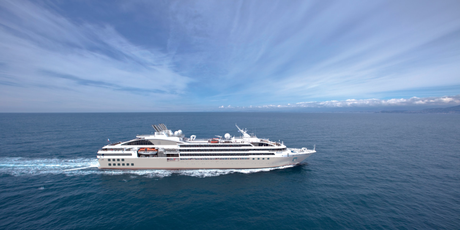
| Length | 142 metres |
|---|---|
| Launched | 2013 |
| Crew | 140 |
Luxury Small Ship
A sleek silhouette, a welcoming intimate atmosphere, and the same philosophy that has made her sister ships, L'Austral, Lyrial and Le Boreal, such a success.
This magnificent yacht of only 132 staterooms and suites, all with balconies, has contemporary decor inspired by the luxury yachting world, with fluid lines and a modern colour scheme combining natural wood with shades of grey and white. White Corian counters in the lobby contrast with the warmth of leather to recall a boat's hull, while the central scuplture of enamelled pieces takes its inspiration from the sea. In the lounge bar, the carpet picks up a tennis stripe theme symbolising a certain idea of cruising, one synonomous with French elegance and a chic seaside spirit.
Wheelchairs
3 specially adapted wheelchair cabins (Deck 3 = Superior cabin no. 307, no balcony, Deck 4 = Prestige Cabin no. 407 - with balcony and Deck 5 = Prestige Cabin no 509, with balcony) and lifts to all decks/areas.
Read about our recent Ponant cruise to Antarctica
Please click the following links to read more about Ponant and the other Ponant cruise ships.
